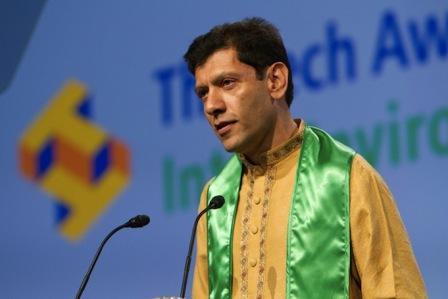/topics/public-infrastructure-and-services
Public Infrastructure and Services
Environmental compliance of hydel projects in Himachal Pradesh - Shukla committee report (2009)
Posted on 20 Dec, 2010 12:43 AMThe terms of reference for monitoring included the following:
Mining - An increasing threat to our rivers - Article by Nitya Jacob
Posted on 20 Dec, 2010 12:29 AMContent Courtesy: Solution Exchange and Nitya Jacob
Author: Nitya Jacob
India’s arteries are choking. Her rivers, the lifeline of hundreds of millions, are over-taxed, polluted and encroached. They are being mined, dammed and emptied of water. Save for the four monsoon months, most rivers are streams of drains, depending on how many cities they pass through. This year people gaped in awe at the River Yamuna (I am sure they were over-awed by other rivers elsewhere too) as for the first time since 1978 looked like a river and not a drain.
Review of current practices in determining user charges & incorporation of economic principles of pricing of urban water supply
Posted on 19 Dec, 2010 07:21 PMThis paper is an outcome of The Energy Research Institute's (TERI’s) study for the Ministry of Urban Development (MoUD) under the Ministry’s Centre of Excellence (COE) to “Review the existing guidelines of determination of user charges for water and sanitation services and to incorporate economic principles of pricing in urban water supply sector in India”.
Mine the gap: Connecting water risks and disclosure in the mining sector – A report by the World Resources Institute
Posted on 17 Dec, 2010 10:43 PMThis paper by the World Resources Institute outlines potential water-related risks facing the mining industry and highlights important gaps in water-related disclosure. The purpose is to provide information, questions, and tools to help the financial community better evaluate water-related risks facing mining companies.
Water management across space and time in India – A working paper by the University of Bonn
Posted on 17 Dec, 2010 10:09 PMThis working paper by the University of Bonn attempts to give a spatial and temporal overview of water management in India. It traces how people and the successive regimes made choices across space and time from a wide range of water control and distribution technologies. The paper divides the water management in India into four periods –
- the traditional system of water management before colonial times;
- response from the colonial rulers to manage the complex socio-ecological system;
- large scale surface water development after independence; and
- finally, the small-scale community and market-led revolution.
The wealth of waste: The economics of wastewater use in agriculture - A report by FAO
Posted on 17 Dec, 2010 07:36 PM This report by the Food and Agriculture Organisation (FAO) deals with the economics of wastewater use in agriculture. It presents an economic framework for the assessment of the use of reclaimed water in agriculture, as part of a comprehensive planning process in water resource allocation strategies to provide for a more economically efficient and sustainable water utilization.
This report by the Food and Agriculture Organisation (FAO) deals with the economics of wastewater use in agriculture. It presents an economic framework for the assessment of the use of reclaimed water in agriculture, as part of a comprehensive planning process in water resource allocation strategies to provide for a more economically efficient and sustainable water utilization.
Immediate moratorium sought on clearances for large dams in northeast India - Press release by Krishak Mukti Sangram Samiti (Assam)
Posted on 14 Dec, 2010 10:56 PM23rd November 2010, New Delhi
- Seeking a moratorium on clearances for large dams in Northeast India
- Withdrawal of clearances granted to 2000 MW Lower Subansiri, 1750 MW Demwe Lower & 1500 MW Tipaimukh dams
- Future steps on hydropower projects and dams only after full, prior and informed consent of people in the region
- Protect the Brahmaputra river basin as a cultural and ecological endowment
Approach paper on water quality issues in islands – Andaman & Nicobar and Lakshadweep by Central Ground Water Board
Posted on 10 Dec, 2010 09:18 PMThis approach paper by the CGWB on water quality issues in islands (Andaman & Nicobar and Lakshadweep) includes a detailed and comprehensive account of the basic information pertaining to each group of islands separately such as administrative set-up, population, climate and also the technical aspects like geomorphology, geological and hydrogeological conditions.
People's initiative in water - Olavanna village in Kerala (India) - Reclaiming public lives - Transnational Institute
Posted on 10 Dec, 2010 06:12 PMThis chapter from the book 'Reclaiming Public Lives' by Transnational Institute describes the case of a small village in the state of Kerala, India, which faced an acute drinking water crisis and describes how people’s initiative, together with the involvement of the local panchayat and the support of the state government, could successfully address the issue of scarce drinking water in the village.
Peer Water Exchange (PWX) receives 2010 Intel Environment Award
Posted on 29 Nov, 2010 04:40 PM
The Peer Water Exchange (PWX) was awarded the 2010 Intel Environment Award today. PWX, a project of Blue Planet Network, is a combination of process, technology platform, and people designed to unlock the global capacity and creativity of individuals, philanthropies, businesses and implementers to solve the global safe drinking water and sanitation crises.






